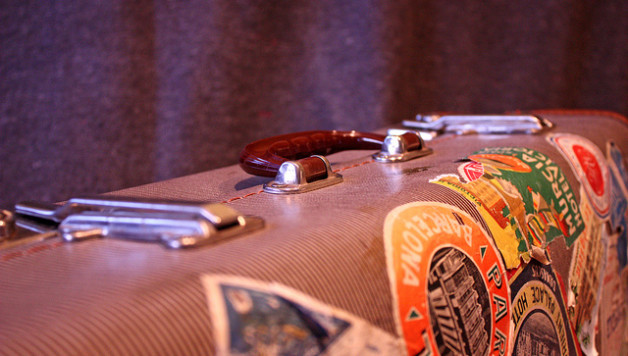10 Travel Health Kit Essentials You Need to Pack
You may think your mum was little bit too cautious when she packed an extensive first aid kit during your childhood travels, but soon enough, you will realize that she was wise to do so. Over the course of your lifetime of travels, you will no doubt need a medicine or two after coming into contact with thousands of people, dealing with changing climates, and taking on adventures that put you at risk of bruises cuts and infections.
It is sensible to carry a supply of medicines for fever, cough, colds, and allergies. Don’t forget to take your usual prescription medications, contraceptives if applicable, and vitamins to boost your immunity.
Here are some useful medicines you should consider taking with you on your travels.
Anti-Malaria Tablets – Malaria is a deadly disease spread by mosquitoes. Anti-Malaria tablets are particularly important if you are travelling to a tropical country or anywhere where Malaria is present. Before you visit any country, check if there is any risk of Malaria. A good place to do this is the CDC (Center For Diseases Control) website under “travel medicine” or under specific country names which are in alphabetical order. You can learn about other infectious diseases present in these countries too e.g Dengue Fever, Yellow Fever. Take the medicine exactly as directed. Doxycycline, for example, is started 2 days before entering the risk country and is taken once daily until 4 weeks after you have left the risk country. Doxycycline should be taken with fluid and food to make sure it gets down in to the stomach, or else you put yourself at risk of terrible heart burn. It also makes you more prone to sunburn while taking it, so make sure you protect your skin with at least SPF 30 sunscreen and a hat.
Antibiotics – In many (mainly western) countries you will need to present a prescription before you can buy antibiotics. If you are prone to chest infections or urinary tract infections it might be a good idea to arrange with your primary family doctor for you to bring some antibiotics with you.
Ibuprofen and Paracetamol – Mild pain killers are a quick fix in case of a headache or toothache. While ibupofen and paracetamol are types of analgesia, they also lower fever. Ibuprofen is in a class of drug called an Non Steroidal Anti-Inflammatory and should be taken with food to protect your stomach. Taken repeatedly on an empty stomach NSAIDs can cause Gastritis or Stomach ulceration.
Decongestants – Decongestants such as Claratyne D are your solution for constant sneezing, nasal and sinus congestion, runny nose and watery eyes. While they do not cure colds, flu or allergies, they provide relief for a runny nose.
Betadine – this is a topical antiseptic for scrapes and cuts. It helps prevent infection. Best to bring it if you plan to climb mountains, hike national parks or visit tropical countries.
Antihistamine – The quickest solution to allergies and hayfever. If you are prone to mild allergic reactions from some types of food or insect bites then antihistamine will help combat its effects.
Anti-Nausea Tablets – Getting travel sickness or a vomiting bug is the last thing you want to happen, especially if you are traveling alone. One problem can be keeping down a tablet when you have already started vomiting. I recommend Buccastem tablets as they are placed under the top lip and are absorbed from there.
Anti-Diarrhea Tablets – Diarrhea is a common problem for backpackers who are not used to local delicacies. It is not unusual to pick up a tummy bug too, especially when travelling in Asia. You can end up losing a precious day or two of travel if have to stay wedded to your hotel bathroom until it passes. Anti-diarrhea tablets can be extremely helpful. A commonly used one is Loperamide.
Rehydration Salts – Diarrhea makes you lose body fluids that cannot easily be replaced by just drinking water. Rehydration salts contain electrolytes and glucose that can quickly replace body fluids. Rehydration salts come in small sachets that you can mix with water.
Gauze and Tape – Aside from medications, you need something for wound care. You may dress a wound with some betadine first, followed with a gauze and tape. Change the dressings regularly to avoid infection.
Traveling is fun but it is not guaranteed to be safe. You’ll experience wounds and sickness along the way so to avoid going to a hospital, wasting time and money and ruining your fun vacation, pack these travel health kit essentials.
Image by Elitatt under Creative Commons license.
This post was written in association with Cincotta Chemist.





